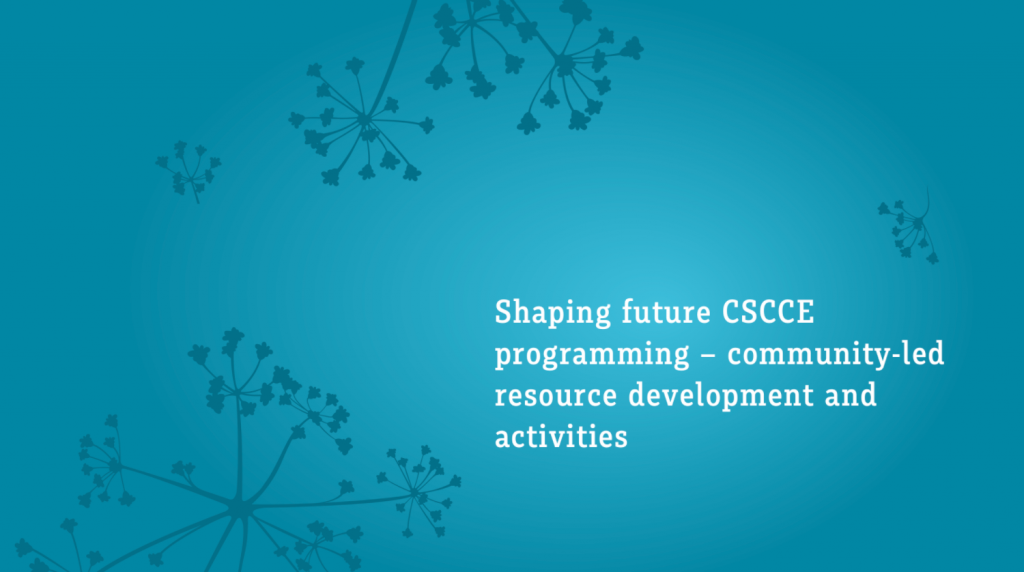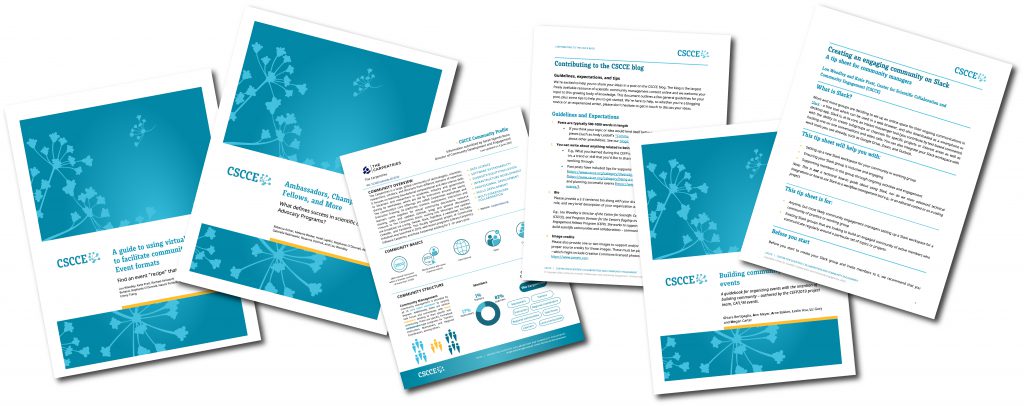CSCCE Special Interest Groups (SIGs) are member-led groups focused on specific topics of scientific community management within CSCCE’s community of practice (request to join). You can find out more about CSCCE SIGs here. The CSCCE Diversity, Equity and Inclusion SIG is convened by Cassandra van Gould, Arielle Bennett-Lovell and Kate Baker, with significant support from an organising committee and the wider community. Community members can join the Slack channel #diversity_equity_inclusion_sig to get involved.
On the 24th of November the first session of the CSCCE’s Diversity, Equity and Inclusion Special Interest Group (DEI SIG) took place. In this guest blog post, Esther Plomp and Arielle Bennett-Lovell, who co-convened the session, recap the meeting. You can also watch the three presentations in full.
During the session, we considered the concept of decolonisation and how it can be put into practice by both researchers and scientific community managers. Decolonisation is both a reflection on the academy’s relationship to lands and people occupied by colonial powers, and the process of reconsidering how this relationship is manifested in a way that restores an equitable power balance. It is not a single action, or a programme, but a long term process requiring input and engagement from everyone.
To gain a better perspective about the issue, we invited three speakers to show their perspective on decolonising science, and to offer some solutions to ensuring that the scientific research ecosystem is equitable. Below follows a summary of the talks given by Dr. Kate Baker, Dr. Thomas Mboa and Dr. Felicia Fricke.
Continue reading “DEI Special Interest Group call recap: Decolonizing STEM”

